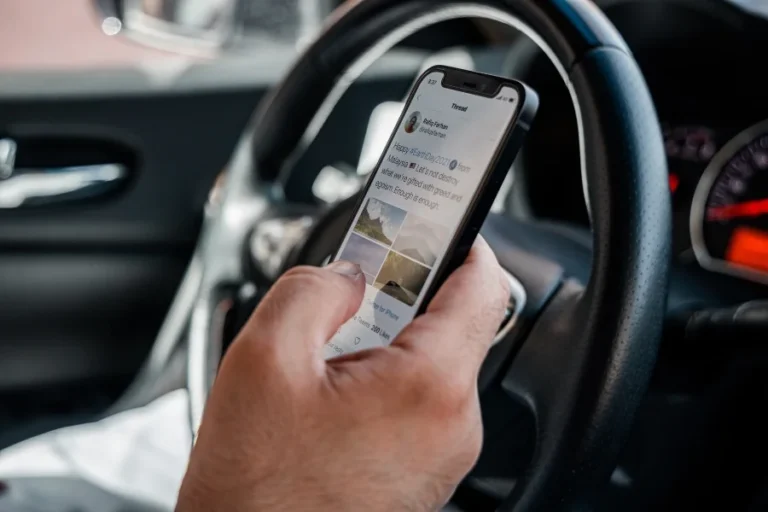North Dakota Texting While Driving Accidents
Any type of distracted driving can result in tragic consequences, including texting while driving. You might consider yourself a master at sending a text quickly. But taking your focus off of the road for just a few seconds could lead to a terrible accident. In the vast majority of instances, people send texts that could easily wait until they get to their destination.
The attorneys with Sand Law have seen the results of texting while driving. The short version is that they’re horrible. If you’ve suffered an injury, or you’ve lost a loved one due to an accident caused by a texting motorist, please don’t hesitate to get in touch. We’ll tell you exactly what to expect throughout the process. And we’ll do everything we can to help you obtain the compensation you deserve.
You can get in touch with us online for a free review of your case, or you can give us a call at 701-609-1510.
North Dakota Texting While Driving Statistics
Approximately 390,000 people are injured in the United States each year in accidents caused by texting while driving. In 2018, more than 4,600 people died in accidents related to cell phone use.
Texting while driving accounts for an estimated 1.6 million vehicle accidents every year. Incredibly, 20% of all U.S. drivers say they’ve sent a text or an email while driving at one time or another. About 25% of all car accidents involve the use of a cell phone.
Texting while driving statistics are hard to come by for North Dakota. There were 1,066 distracted driving violations posted to the North Dakota Driver’s License system database in 2020. Needless to say, with how common texting while driving is, cell phone use behind the wheel likely plays a large role in motor vehicle accidents across the state.
Is Texting While Driving Against the Law in North Dakota?

Just like in about every other state (except Missouri and Montana), you can’t legally text while driving in North Dakota. If you’re caught, you will face a $100 fine.
Why is Texting While Driving Dangerous?
There are a lot of different types of accidents that can occur due to texting while driving. These are just some of the examples.
- T-Bone collisions. A side-impact accident, will oftentimes take place at an intersection. Many people get so wrapped up in sending a text that they fail to see that red light or stop sign that is fast approaching. They’ll broadside another vehicle due to their loss of focus.
- Rear-end crashes. When a motor vehicle operator is texting while behind the wheel, they can’t tell whether or not the motorist in front of them is about to apply their brakes. The texting driver will inevitably hit the rear end of that car. A rear-end crash can result in severe whiplash, as well as other types of injuries.
- Head-on collisions. Incredibly, some people will text even when they’re on a two-lane highway traveling at a high rate of speed. In far too many instances, this results in a collision with an oncoming car. A head-on crash is probably the worst kind of accident involving two vehicles. The reason is that the drivers and other occupants are subjected to much stronger forces.
Are Teens More Likely to Text and Drive?
While people text and drive no matter what their age may be, the problem appears to be particularly pervasive among teenage drivers. Researchers analyzed the findings of a Youth Risk Behavior Survey, which traced the behaviors of students of high school age throughout 35 states. The results of the analysis were published in the Journal of Adolescent Health. According to the researchers, 38% of the more than 100,000 teenagers surveyed admitted that they texted while driving. Of the respondents who were 18 or older, 56% of them admitted to texting while behind the wheel.
The researchers also broke down the responses across different states. They found that more than 50% of North Dakota teenagers said they sent a text or an email at least one time while driving in the previous month. North Dakota was one of four states with a response rate this high. The other three states that round up the top are Nebraska, Wyoming and Montana. Only South Dakota, with a 64% response rate, was higher.
Teens who text and drive are also more likely to engage in other risky behaviors while behind the wheel, according to the study. For example, teens who don’t wear a seatbelt are 21% more likely to text or email while behind the wheel. And the ones who drink and drive are 91% more likely.
This paints a concerning picture, to say the least. If more than 50% of teens admitted to texting while driving, how many more are actually doing so?
How to Prove the At-Fault Driver Was Texting
Schedule a Free Consultation with Sand Law Today
If you’ve suffered an injury due to an accident caused by a negligent driver, you’re more than likely going to be entitled to compensation for damages, or monetary losses. These will likely include medical expenses, as well as lost wages because you’ve had to miss time from work. A skilled attorney will work to help you obtain that compensation from the insurance company of the negligent driver. Your attorney will also look for other parties that contributed to the accident.
At Sand Law, we have an extensive track record of success helping clients who’ve suffered damages due to negligent drivers who decided to send a text while they were behind the wheel. If you would like to learn more about how we may be able to help, please get in touch with us as soon as you can. Contact us online or call 701-609-1510 for a free consultation.
